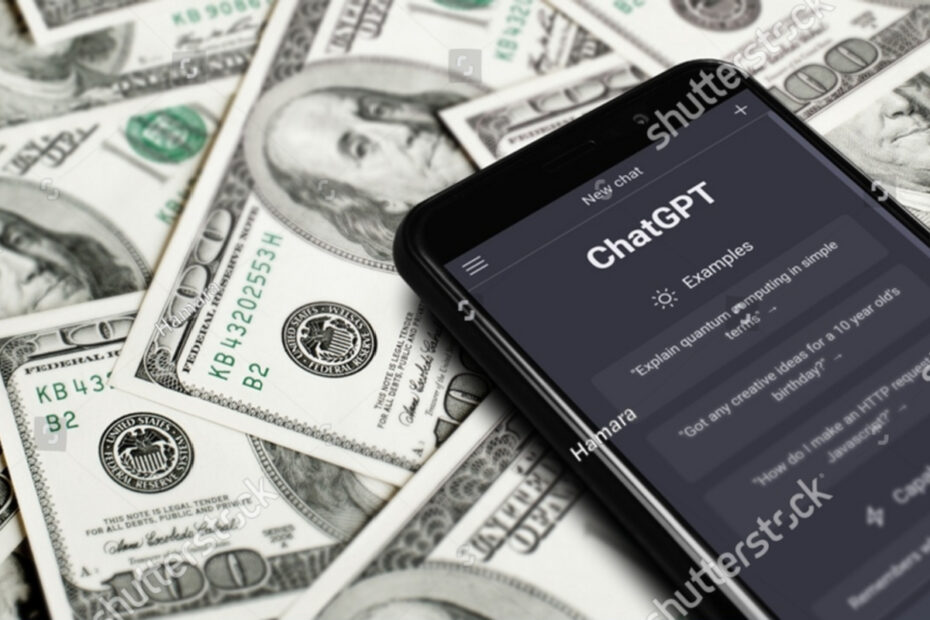How You Can Use ChatGPT To Manage Your Personal Finances

The vast majority of people struggle with managing their personal finances. Part of that difficulty is due to lack of understanding and education, but it is also difficult due to the abundance of financial options available. Paralysis by analysis is definitely at play.
Fortunately, ChatGPT, AI-powered chatbot from OpenAI can provide tailored financial advice. No, really, it can.
By analyzing your financial situation, ChatGPT offers customized recommendations to make informed decisions. ChatGPT provides guidance to reduce debt, save for a down payment, and plan for retirement.
Managing Your Budget With AI
Budgeting is a vital aspect of personal finance. ChatGPT offers guidance and tools for budgeting. With personalized guidance, ChatGPT analyzes your finances and offers suggestions for creating and sticking to a budget that fits your needs.
To help people manage their money better, ChatGPT suggests various budgeting tips, tools and resources. If you struggle to track expenses, ChatGPT can recommend apps that monitor spending. If you’re uncertain about allocating funds to various categories, ChatGPT offers advice based on your income and priorities. Furthermore, ChatGPT sends reminders and alerts to avoid overspending.
For example, we asked ChatGPT to provide the best apps for budgeting. This is what it spit out.
Mint: A free app that connects to your bank accounts and tracks your spending, bills, and investments.
YNAB (You Need a Budget): A paid app that focuses on helping you create a budget and stick to it.
Personal Capital: A free app that tracks your spending, savings, and investments all in one place.
PocketGuard: A free app that helps you manage your budget by showing you how much you have left to spend after bills and savings.
EveryDollar: A free app that follows the zero-based budgeting method, where every dollar is accounted for in your budget.
Goodbudget: A free app that uses the envelope budgeting method, where you divide your money into different categories and track your spending accordingly.
While these results aren’t extremely comprehensive, they provide a quick overview of what might be important to a user. In fact, what it does is provide answers to, are probably two of the most pressing questions a customer might have: Is the app free and does it focus on things that matter to me?
Using ChatGPT’s budgeting advice and tools can lead to financial stability and security. ChatGPT can also recommend methods to reduce debt, save for a home, or plan for retirement. With its customized suggestions, ChatGPT can help you achieve your financial goals and make informed decisions about your money.
Related: Having Trouble Saving Money? Try One Of These Simple ‘Games’ To Make Being Frugal Way More Fun
Using AI To Help You Manage Debt

ChatGPT can be of great help when it comes to managing debts and ensuring financial stability. It can offer customized advice to lower debt and improve financial management.
For credit card debt, ChatGPT can suggest strategies such as consolidating debt or negotiating lower interest rates. ChatGPT can also explain debt repayment methods such as the debt snowball or debt avalanche and help users prioritize which debts to pay off first.
For example, we asked ChatGPT to come up with a to help a person who makes $75,000 a year, has $3,000 a month in expenses and has $25,000 in credit card debt. Here is how it responded.
- Create a budget: Start by creating a budget that lists all of your income and expenses. Be sure to include your minimum credit card payments and any other debt payments in your budget.
- Prioritize debt repayment: Look at your budget and see where you can cut expenses to free up extra cash for debt repayment. Consider ways to reduce your monthly expenses, such as cutting back on discretionary spending or downsizing your home or car. Use the extra money to pay off your credit card debt.
- Consider a balance transfer: If your credit score is good enough to qualify, you may want to consider transferring your credit card balances to a card with a lower interest rate. This can help reduce the amount of interest you pay each month and speed up the repayment process.
- Snowball or avalanche method: Decide whether you want to use the snowball or avalanche method for paying off your credit card debt. With the snowball method, you pay off your debts from smallest to largest balance, regardless of interest rate. With the avalanche method, you focus on paying off debts with the highest interest rates first.
- Set a debt repayment goal: Determine how long you want it to take to pay off your credit card debt. For example, if you want to pay off your debt in three years, divide your total debt by 36 to determine the monthly payment needed to achieve that goal.
- Stick to the plan: Make your debt payments on time every month and stick to your budget. It may be challenging, but remind yourself of your goal and the benefits of becoming debt-free. Consider enlisting the help of a financial advisor or credit counselor if you need additional guidance and support.
In addition to managing current debt, ChatGPT can also provide guidance on avoiding future debt by offering tips on managing money wisely, raising credit scores, and avoiding overspending.
Related: Financial Planners Say These Are The Two Things Millennials Spend Too Much Money On
Leveraging ChatGPT To Help You Invest
Investing is a critical aspect of financial management. ChatGPT can advise on suitable investments based on financial goals and risk tolerance.
ChatGPT can recommend stocks, mutual funds, and cryptocurrencies that align with a user’s financial objectives. Diversification strategies to minimize risk and maximize rewards are also available.
Users receive market trend updates and alerts from ChatGPT. The information allows users to make informed decisions about when to buy or sell investments.